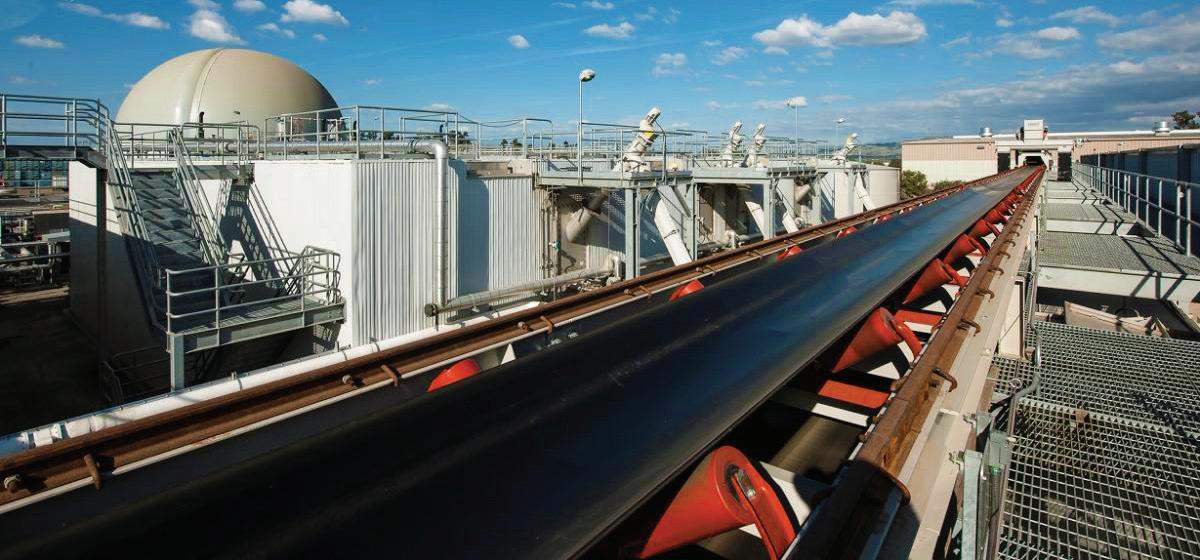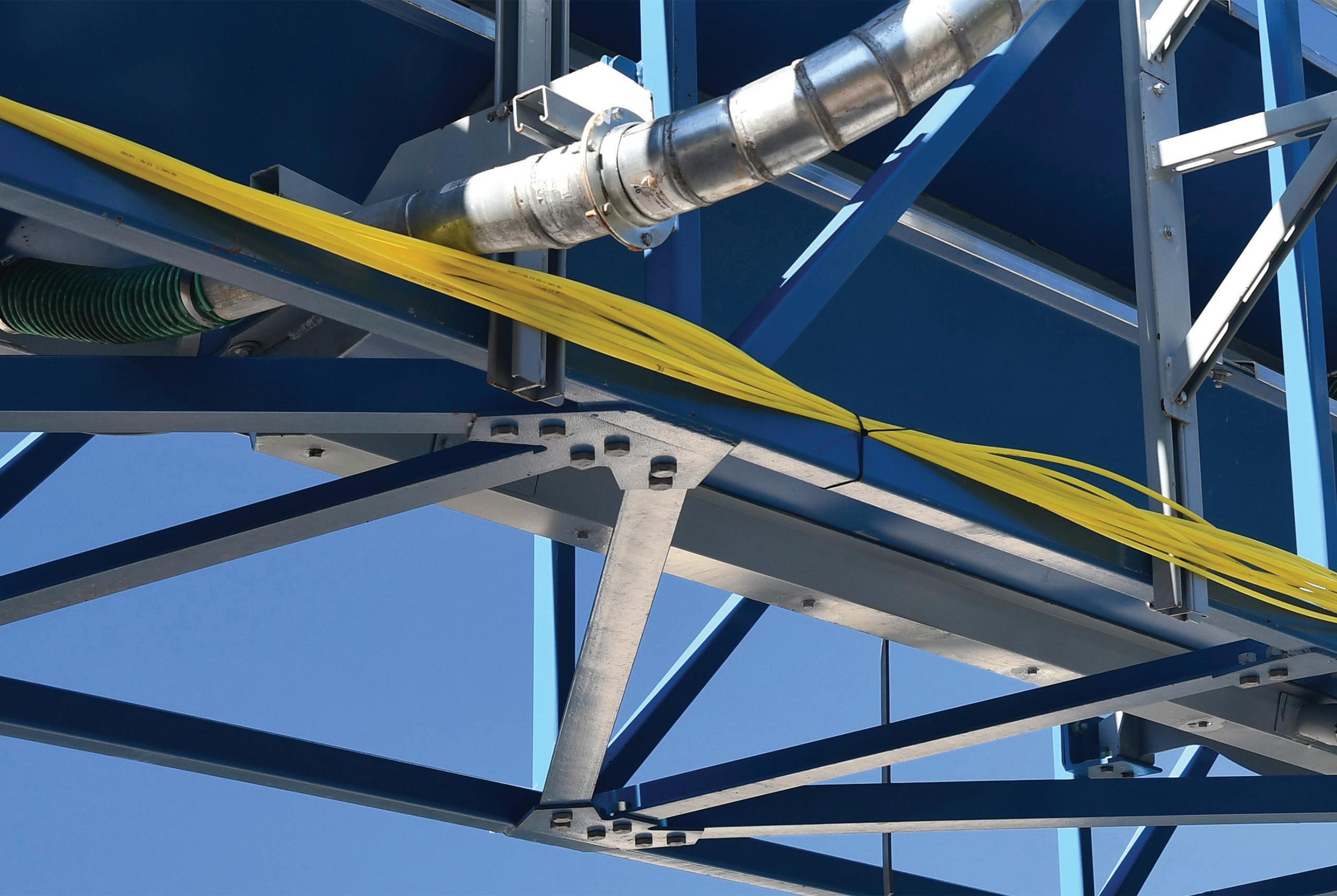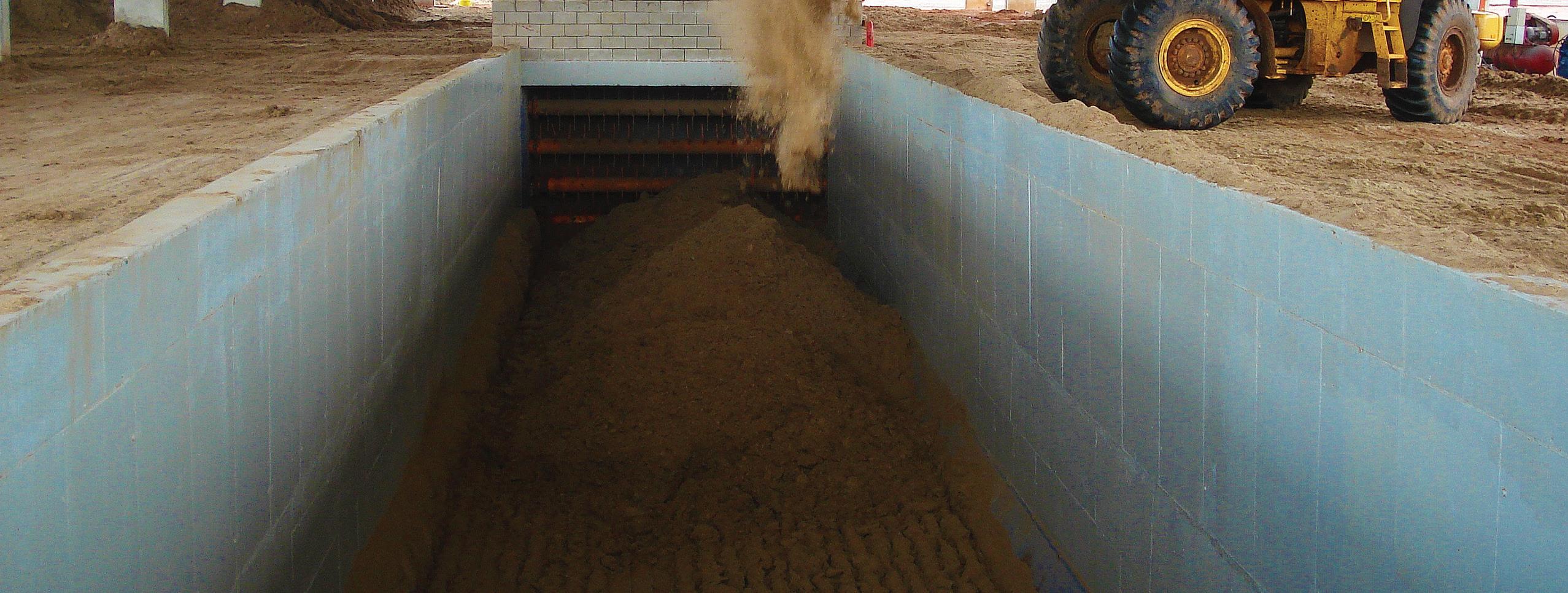¦SPOTLIGHT
By Tom Bryan
A bucket of biomass residue is dumped into a pit-mounted bin equipped with a KEITH Walking Floor. PHOTO: KEITH MANUFACTURING INC.
KEITH Walking Floor: Moving Biomass Forward Whether transporting wood waste, ag residue or MSW, the ability to safely and efficiently deliver bulk material in almost any situation—high winds, uneven terrain, canopied storage areas—makes horizontal unloading a frequent necessity in biomass handling. This challenging work is made possible by the “moving floor” technologies developed by Oregon-based KEITH Manufacturing Co., maker of the world-renowned KEITH Walking Floor. Offering its Walking Floor technology for both mobile and stationary applications, KEITH’s customizable material handling solutions offer biomass handlers outstanding versatility. Walking Floors are comprised of a series of reciprocating slats—powered by a hydraulic drive—that serve as the floor of a trailer or bin. As the floor moves through its four-phase cycle, every third slat moves together. The friction of the load on the two sets of slats that remain in place keeps the load from moving while just one set of slats moves. During the final phase, all slats move in unison conveying the material.
Safe, Reliable and Fast
The Walking Floor system is as inge-
nious as it is simple. And it is not only reliable, but surprisingly fast. “Our Walking Floor technology, with the right PTO, offers the fastest unloading speed of any moving system on the market,” says KEITH Sales Director Mike Robinson. “A mobile unit unloads a 45- to 48-foot trailer in 3 to 5 minutes. This is a big selling point for our systems because rapid turn times with biomass delivery is important to optimizing plant operations.” Further boosting the speed and convenience of the mobile Walking Floor unloader, KEITH offers an electric or hydraulic CleenSweep tarp system that, true to its name, cleans the floor of a Walking Floor trailer as it unloads material, essentially eliminating manual cleanup and reducing payload cross contamination. The automated system eliminates the need for brooms or manual tarps, making operator entry into the trailer unnecessary. Robinson says Walking Floor systems are available in a variety of floor slat profiles and thicknesses, depending on the type of material being handled. There are slats designed for wood and agricultural residues, high-moisture loads, heavy duty and abra-
sive materials, bales, pallets, etc. The slats come standard in aluminum but are also available in stainless steel for very abrasive or corrosive materials. The standard 3.5inch slats are principally flat with various profiles. For certain applications, v-shaped slats, pressure-seal slats or leak-proof slats are specified. The Walking Floor self-unloading systems for trailers, which are sold through a nationwide network of dealers and trailer manufacturers, bring mobile unloading options to where tippers and dump trailers simply can’t go: inside buildings and tunnels, under power lines, and on uneven or unstable ground. Since the technology’s inception more than 60 years ago, safety has been KEITH’s top priority. The horizontal unloading action of the Walking Floor system is safer than dump or tipper trailers, which can overturn in windy conditions or because of load shift. “Walking Floor trailers keep your trailer on the ground,” Robinson says. “The biomass industry relies on our mobile systems because they are safe and reliable under almost all conditions, which minimizes operator risk and reduces unnecessary downtime caused by unforeseen conditions.”
Stationary Systems
KEITH’s Walking Floor conveyor for stationary storage and conveying bin systems are available in several configurations: pit-mounted, large storage bins, loader fed BIOMASSMAGAZINE.COM 25







